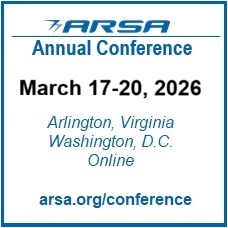ARSA Asks Federal Court To Review Expanded FAA Drug & Alcohol Testing Requirements
Contact:
Sarah MacLeod (Sarah.MacLeod@arsa.org) or
Marshall S. Filler (Marshall.Filler@arsa.org)
703 739 9543
WASHINGTON, D.C., March 13, 2006 The Aeronautical Repair Station Association (ARSA), calling the new rule an unnecessary burden that provides no aviation safety-related benefits, has asked a federal court to review the Federal Aviation Administration’s (FAA) recently updated drug and alcohol testing regulations.
ARSA on March 10 filed a Petition for Review with the U.S. Court of Appeals for the District of Columbia Circuit seeking a review of the regulations, which extend drug and alcohol testing to subcontractors at any tier of the maintenance process. Although the FAA calls the new rule a “clarification,” ARSA believes that it is a significant expansion of the current testing regulations because it requires employee testing for thousands of companies that have never been subject to the FAA’s drug and alcohol testing regimen. The regulations were published in the January 10, 2006 Federal Register.
Under the FAA’s current drug and alcohol testing program rules, which ARSA fully supports, employees performing “safety-sensitive” functions for air carriers, either directly or by contract, must be part of an FAA-approved testing program. Certificate holders (air carriers and repair stations) also must, under FAA regulations, test and/or inspect all work done by subcontractors at any tier to ensure its airworthiness. Therefore, expanding the drug and alcohol testing requirements to all subcontractors doesn’t add a layer of safety to the maintenance process. Rather, they merely serve to add burdensome requirements to companies that, under FAA’s own rules, already have their work inspected and approved by FAA-certified repair stations or air carriers.
“Certificate holders, including repair stations, are the safety net in FAA’s system,” said ARSA Executive Director Sarah MacLeod. “They are responsible for inspecting and testing their own work and the work of all subcontractors to ensure airworthiness, and they are required to have FAA-approved drug and alcohol testing programs. Expanding the drug-and-alcohol program requirements below the maintenance tier’s certificate-holder level adds only unnecessary costs and complications to a system that already ensures the safety and airworthiness of all work being done on air carrier aircraft.”
ARSA’s court filing argues that the FAA violated several federal statutes, including the Administrative Procedure Act (APA) and the Regulatory Flexibility Act (RFA) as well as the Fourth and Fifth Amendments to the U.S. Constitution.
ARSA is joined as a party to the litigation by two FAA-certificated repair stations and a non-certificated maintenance source.








